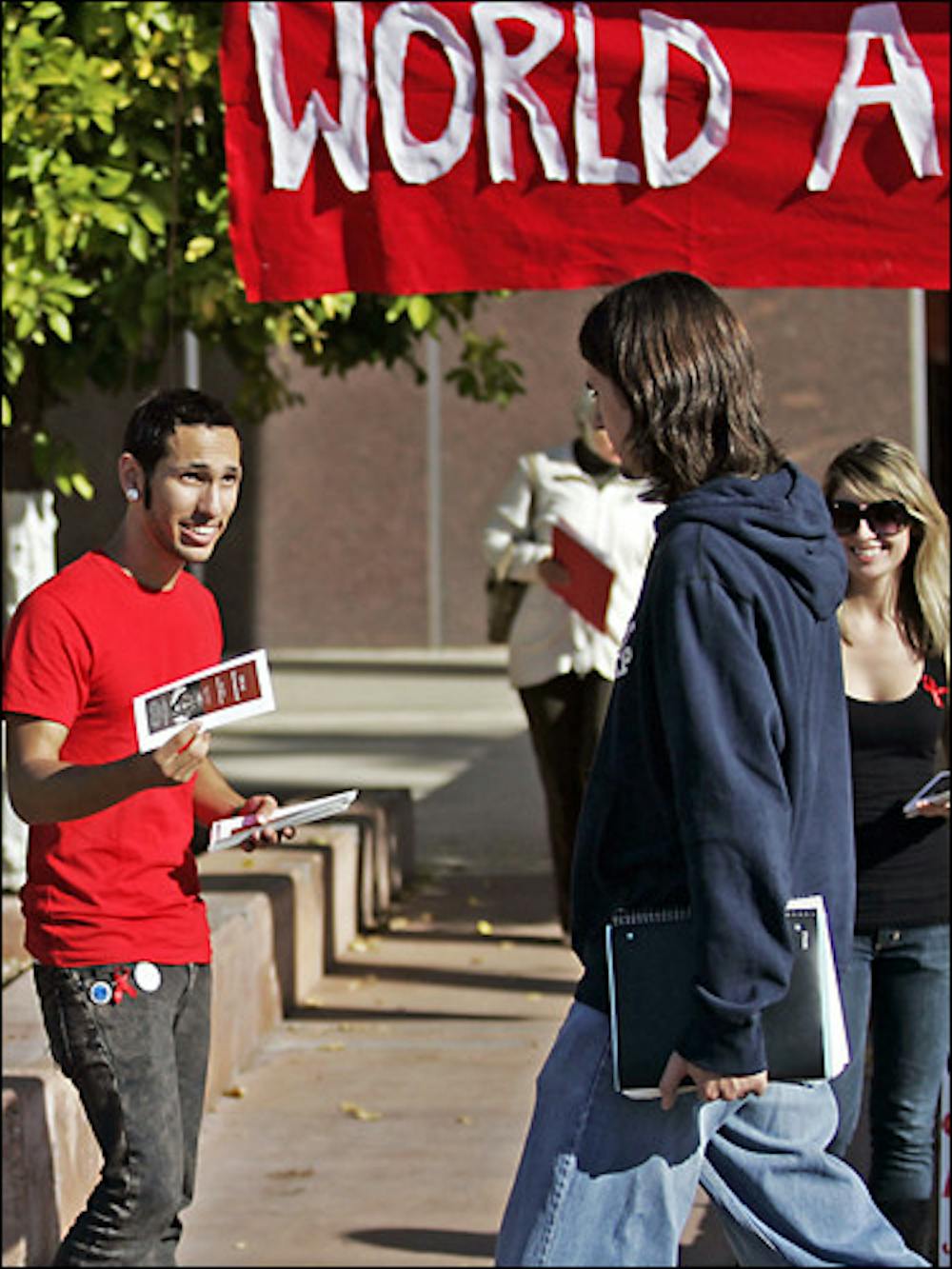As the face of the AIDS epidemic changes, ASU students and local groups are working to raise awareness about the disease.
In observance of World AIDS Day, several ASU and local non profit organizations sponsored tables on Hayden Lawn on the Tempe campus to promote AIDS awareness and prevention Monday.
Global studies and global health sophomore Heidi TenPas, along with the World AIDS Day planning committee, put on the event.
“[AIDS] is obviously a global problem, but it’s about individual behavior change and then working on a global scale,” TenPas said. “There are just all kinds of things that need to be done.”
There are an estimated 250,000 people in the U.S. currently who are unaware that they are HIV positive, TenPas said.
“This is why everyone needs to get tested,” TenPas said. “Because the only way you can fully, fully know [that you are HIV free] is to be tested.”
She said the biggest rise in HIV infections is among married women. It is the people that believe they are safe from the disease who are actually the most susceptible.
“We just wanted students who aren’t always thinking about their health just to know that there are resources, and they should take advantage of them,” she said.
Representatives from Southwest Center for HIV/AIDS emphasized the importance of educating college students about AIDS because more than half of all new infections happen to people under the age of 25.
“There is so much ignorance around the disease still, that people think it is specific demographics, specific populations that attract HIV,” said Kristen Bakalis, the organization’s volunteer program coordinator. “It’s everyone’s disease. HIV doesn’t discriminate from age, race, sexual identity, gender, nothing.”
Tyler TerMeer, the Southwest Center’s prevention specialist, said the dynamics of the illness are changing as the medications improve, but there is still no cure for AIDS. It is still a global problem that demands the public’s attention, TerMeer said.
“We never thought that people would live as long as they did, and now that they have, we are trying to figure out how to manage HIV as a chronic illness rather than the death sentence that it was in the beginning of this epidemic,” TerMeer said.
Charisse Burden-Stelly, president of ASU’s Black and African Coalition said she and the coalition came out to shed light on the effects AIDS has on the Black community.
“Within our community AIDS is an opportunity for people to point the finger at who’s spreading it, who’s not spreading,” Burden-Stelly said.
She said AIDS brings up major issues such as infidelity and of overall poor health.
“These are all things that are prevalent in the black community, but people don’t want to talk about [it] because we are very reluctant to indict our own,” Burden-Stelly said. “But it’s getting out of hand so we need to talk about it.”
The day’s events included a lecture on the impact of HIV/AIDS on sub-Saharan Africa, a free film screening of the documentary “A Closer Walk,” and an inspirational talk led by a woman diagnosed with HIV.
LGBTQ coalition co-director Kendall Gerdes said the range of organizations present and the amount of featured events speaks to the importance of AIDS awareness.
“The diverse fabric of all the different clubs and organizations show that AIDS is a human issue,” Gerdes said.
Reach the reporter at lauren.gambino@asu.edu




